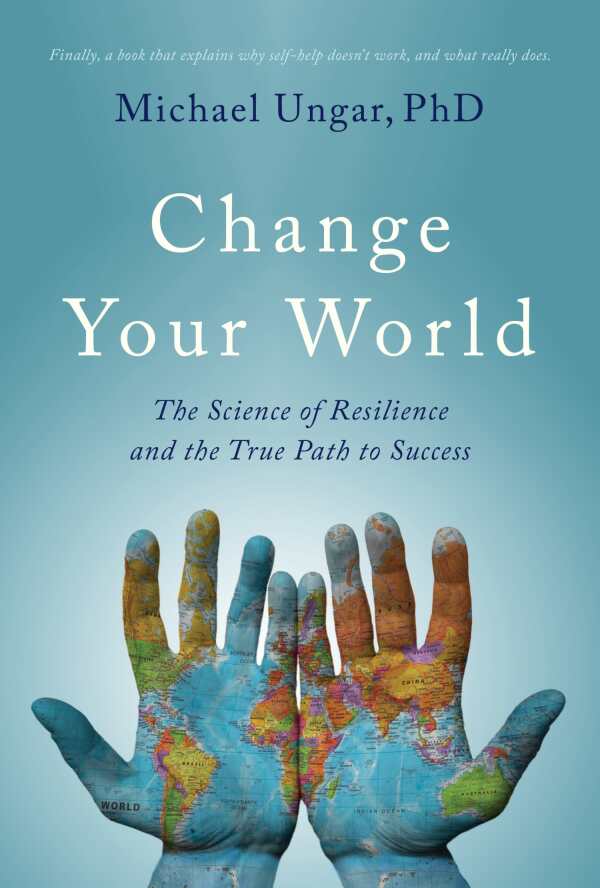Change Your World
The Science of Resilience and the True Path to Success
With clinical expertise, Change Your World opines on the failure of self-help methods that focus on individual motivation and calls for fostering resilience instead.
Michael Ungar’s Change Your World argues that resilience is key in creating a successful and fulfilling life and in maintaining good mental health in times of stress.
The book begins with refreshing near heresy: self-help methods that focus on the individual don’t help all that much because they fail to recognize the impact of the surrounding environment. A better approach, the book says, lies in helping people cultivate resilience. A list of twelve attributes to develop is provided, and they are sensible, achievable goals, like forming strong friendships and taking on responsibilities.
The opening chapters are written with clarity, though focus wanes as the book goes on, and the at first direct and friendly voice becomes more verbose, with disparate analogies that blur rather than enliven the book’s premise. An implied slant toward general readers is lost amid academic discussions of genetics, obesity research, and comparative studies of various psychotherapies that suggest an audience of fellow clinicians or use as a college text book.
The tone changes again in later chapters, with the introduction of think pieces on sociological topics like social justice, corporate structure, and government institutions. The theme of individual resilience fades from view, and the book becomes more proclamative than prescriptive. Some of its comments—such as that religion can be harmful, but is preferable to drug use—are dismissive.
The book’s examples seem picked to support particular conclusions. They wander too far from Ungar’s personal experience and make pronouncements on large, complex social structures that seem to come without nuance. The book is at its most useful when it works on a small canvas and stays within the realm of Ungar’s personal experiences as a family therapist and professor of social work.
Personal expertise illuminates some of the book’s initial points on resilience, drawing on examples from work with patients. This approach makes theory accessible, portraying it in human terms. Focused and informative examples become fewer in number when the book’s focus shifts to research studies and large groups and organizations, leaving individuals out of the equation. The text is followed by two fill-in-the-blanks exercises, both offered without comment as to what various answers might suggest.
Change Your World opines on the failure of self-help methods that focus on individual motivation and calls for fostering resilience instead.
Reviewed by
Susan Waggoner
Disclosure: This article is not an endorsement, but a review. The publisher of this book provided free copies of the book and paid a small fee to have their book reviewed by a professional reviewer. Foreword Reviews and Clarion Reviews make no guarantee that the publisher will receive a positive review. Foreword Magazine, Inc. is disclosing this in accordance with the Federal Trade Commission’s 16 CFR, Part 255.

